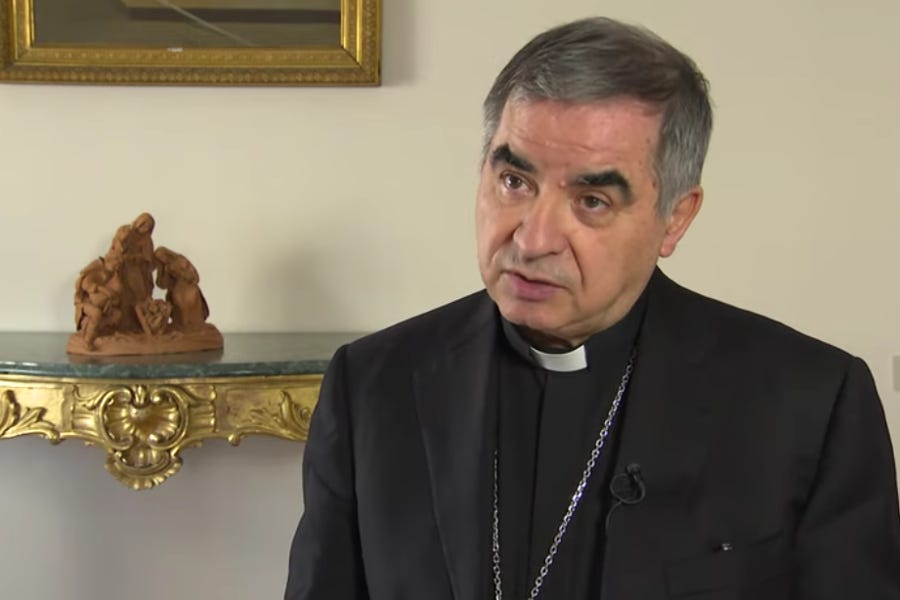APSA urges court to drop ‘private spy’ case against Becciu
Lawyers for the Vatican’s sovereign wealth manager told judges to forget about allegations relating to Cecelia Marogna, but convict on other grounds
Lawyers for the Holy See’s sovereign wealth manager recommended Thursday that the court drop some charges against Cardinal Angelo Becciu in the landmark Vatican financial trial.
The legal team representing APSA, the Vatican body responsible for managing the Holy See’s propert…

